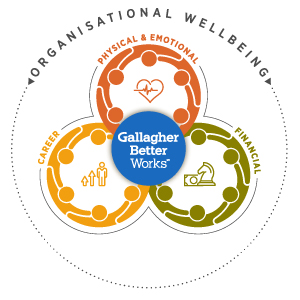
Corporations in the UK might be in danger of losing the human touch. Today’s fast-paced market is characterised by mergers and acquisitions, rationalisation, the changing shape of employment in terms of zero-hour contracts, distance working and the rise of the so-called ‘gig economy’. Caught in the whirlwind of global market forces, it’s understandable that many in HR circles can feel overwhelmed and removed from their core reason for being: their people.
Whilst new technology and data-enabled practices are to be welcomed, employee benefits should always be used in conjunction with the human element. One key aspect that should never change is the ongoing conversation with the end user: human-to-human.
Authenticity is everything in the battle to attract and retain the best talent. People are even taking pay cuts in order to work for companies that inspire them. Destination employers — those that win hearts and minds with the promise and consistent delivery of work-life balance and career opportunity - will prevail.
These companies know how to build trusted relationships and understand what people at all levels want — with a view to achieving great outcomes: engaged employees, a strong corporate reputation, cost efficiencies and productivity. And they’re committed to an integrated approach that’s structured for the changing drivers of engagement.
Navigating change
External political, economic and social trends pose human capital risk challenges that require organisations to continually adapt. Consider some of the current factors that are making it ever harder to attract and keep people, including a growing labour shortage in the UK and a predicted fall in immigration from the EU when the effects of Brexit take hold. This translates into increasing dependency ratios, with fewer people working and more retirees to pay for.

In this environment, people strategies will be forced to focus on new ways of doing more with less. This might include retraining older workers, attracting all ages of workers through apprenticeships, helping women rejoin the workforce and automating jobs.
Central to all of this is managing the physical, emotional, financial and career wellbeing of an existing workforce that’s getting older. There are more caring responsibilities at the one end, and a struggle with inflexible workplaces, job uncertainties and financial insecurity at the other.
Leading the way
The sooner organisations set out on the right path to attract and retain the best talent — despite a stubbornly complex marketplace — the quicker they’ll reap the rewards of sustaining a dynamic workforce. Destination employers are reimagining their total reward framework and adopting a more humanistic and holistic approach to employee wellbeing - one that inspires and supports better work. From this realignment, a new workplace covenant and culture are emerging. They define a distinct talent management reputation that attracts and engages the right employees in roles that lead to meaningful careers - and organisational wellbeing.

